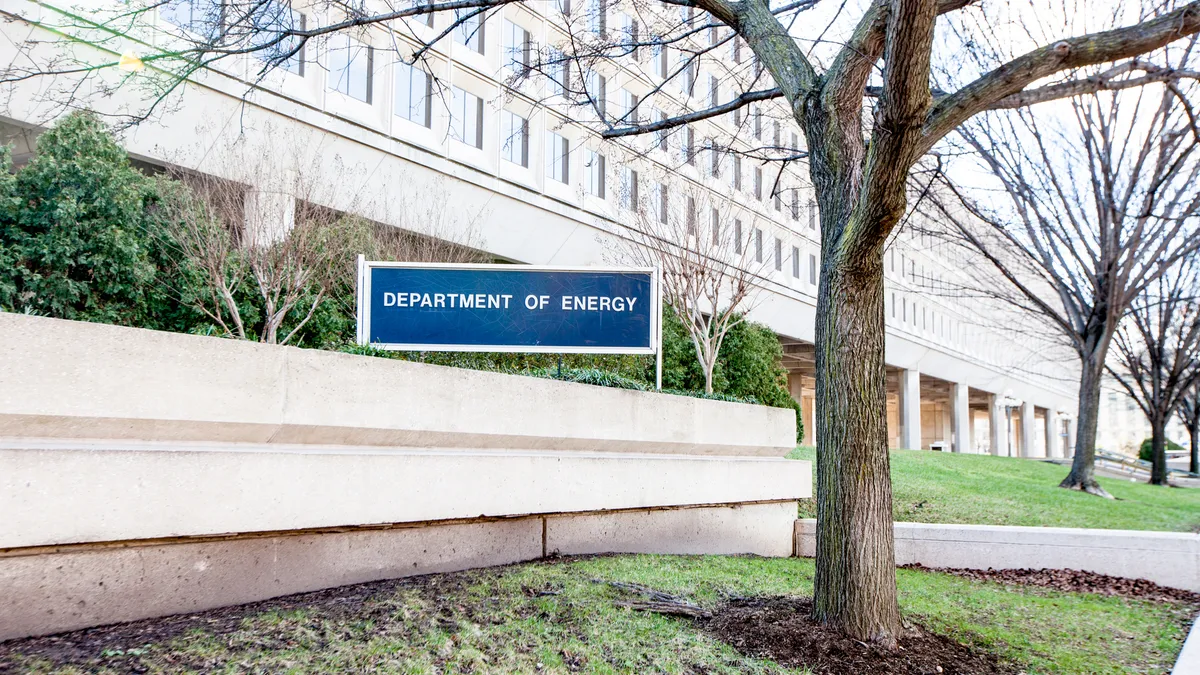Dive Brief:
- The U.S. Department of Energy is allocating $46 million to develop advanced building technologies and retrofit practices to reduce energy waste in buildings.
- The Buildings Energy Efficiency Frontiers and Innovation Technologies, or Benefit, funding will be channeled toward 29 projects across 15 states to help advance cost-effective building electrification solutions.
- The projects are expected to support decarbonization strategies that will significantly reduce the building sector’s greenhouse gas emissions, eliminate energy consumption and reduce strain on the nation’s grid.
Dive Insight:
The funding is expected to curb high-energy consumption in commercial and residential buildings, which account for about 40% of energy usage in the U.S. That includes 74% of total U.S. electricity use and 35% of total carbon emissions, according to the DOE.
Projects in the DOE Building Technologies Office’s Emerging Technologies program cover a range of areas, including heating, ventilation, air conditioning, water heating, thermal energy storage, battery energy storage systems, plug loads and lighting, and an opaque building envelope. This envelope includes cost compression solutions for building insulation retrofit technologies, air leakage diagnostic and air-sealing technologies, and insulated cladding for residential field applications.
“Exploring new ways to build and operate America’s buildings is key to cutting harmful emissions and combating the climate crisis,” U.S. Secretary of Energy Jennifer Granholm said in a Monday news release. “With this funding, the Department is providing critical new resources to teams from across the nation to transform game-changing ideas into innovative solutions, creating safer and healthier homes and buildings while cutting energy costs.”
Specific commercial projects receiving funding include:
- Purdue University’s “Commercial cold climate rooftop heat pump using CO2/propane cascaded with a centrifugal system”
- New Building Institute’s “Made in America grid integrated commercial [heat pump water heater] systems” (Oregon).
- University of Wisconsin’s “Thermal storage-ready high-performance multisplit heat pump system”
- University of Maryland: College Park’s “Low cost and high performance modular thermal energy storage for building equipment”
- Gridscape Solutions’ “Smart energy storage integration and management platform for buildings” (California)
A full list of project funding recipients is available on the DOE website.
The Department of Energy said more than half of the 29 projects selected will “pursue advancements to improve space conditioning and water heating.” The agency noted that those projects represent just over half of all energy use in American homes. It added that the remaining projects will help advance other components that affect commercial buildings and homes.
The DOE also said that before funding becomes available, applicants will need to undergo a negotiation process. The government agency stated it can cancel negotiations and rescind selections for any reason during that time.
















